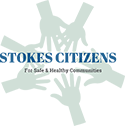On Monday, March 9, 2020, NC DHHS confirmed 5 new cases of novel coronavirus (COVID-19) in Wake County, increasing the statewide total to 7. The North Carolina Department of Health and Human Services (NC DHHS) is taking proactive steps to protect the health of our community by making recommendations that are meant to slow the spread of the COVID-19 outbreak and reduce the number of people infected.
We understand these actions will have a significant impact on the lives of people in our communities. NC DHHS is making these recommendations based on guidance from the Centers for Disease Control and Prevention (CDC), current actions by other States, and the most up-to-date epidemiologic information we have to protect the public’s health. This is a critical moment in the growing outbreak of COVID-19 in North Carolina when such measures can potentially impact the spread of the disease. The recommendations should be implemented immediately and extend through March 31, 2020. We are monitoring the situation closely to determine whether these recommendations will be extended beyond March 31st.
HIGH-RISK PERSONS
NC DHHS recommends that people at high risk of severe illness from COVID-19 should avoid large groups of people as much as possible. This includes gatherings such as concert venues, conventions, church services, sporting events, and crowded social events. People at high risk should also avoid cruise travel and non-essential air travel.
People at high risk include anyone:
- Over 65 years of age, or
- with underlying health conditions including heart disease, lung disease, or diabetes, or
- with weakened immune systems.
The following recommendations pertain to persons and establishments STATEWIDE.
1) CONGREGATE LIVING FACILITIES
NC DHHS recommends that all facilities that serve as residential establishments for high risk persons described above should limit visitors and restrict all visitors who have respiratory illness or potential exposure to COVID-19. These establishments include: nursing homes, independent and assisted living facilities, correctional facilities, and facilities that care for medically vulnerable children.
2) MASS GATHERING OR LARGE COMMUNITY EVENTS
NC DHHS recommends that event organizers:
- Urge anyone who is sick to not attend.
- Encourage those who are at high risk, described above, to not attend.
- Adopt lenient refund policies for people who are high risk.
- Find ways to give people more physical space to limit close contact as much as possible.
- Encourage attendees to wash hands frequently.
- Clean surfaces with standard cleaners.
3) ALL TRAVELERS
NC DHHS recommends that all travelers returning from countries and US states impacted by COVID-19 follow DHHS guidance on self-monitoring:
4) SCHOOLS
NC DHHS is NOT recommending pre-emptive closure of schools and childcare centers at this time.
The following recommendations pertain to persons and establishments in the TRIANGLE area.
5) WORKPLACE SETTINGS
NC DHHS recommends that employers and employees use teleworking technologies to the greatest extent possible. Additionally, employers should:
- Urge employees to stay home when they are sick and maximize flexibility in sick leave benefits.
- Consider staggering start and end times to reduce large numbers of people coming together at the same time.
6) MASS GATHERINGS, COMMUNITY AND SOCIAL EVENTS
NC DHHS recommends that organizers of mass gathering events that primarily draw high-risk persons, including those that attract older adults, should consider cancelling or postponing these events.
